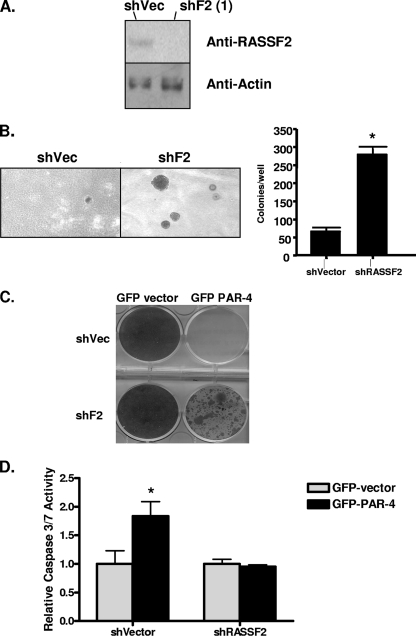FIG. 4.
Loss of RASSF2 enhances tumorigenicity of prostate cancer cells and confers resistance to PAR-4-mediated cell death. (A) Western blot analysis of RASSF2 expression in PC-3 prostate cancer cells stably expressing a RASSF2 shRNA construct or corresponding vector control. Actin was used as a control for protein loading. (B) PC-3 cells stably expressing an shRNA to RASSF2 or vector control were plated in soft agar and scored for growth after 14 days. Quantification is shown in the adjacent panel. *, statistically different (P < 0.05) from cells transfected with the vector control. (C and D) The PC-3 prostate cancer cells stably expressing an shRNA to RASSF2 or a vector control were transfected with GFP-vector or GFP-PAR-4, and surviving colonies stained with crystal violet after 2 weeks of selection in G418 (C) or assayed for apoptosis via determination of caspase-3 and -7 activities (D). *, significantly different (P < 0.05) from cells transfected with GFP-vector.

